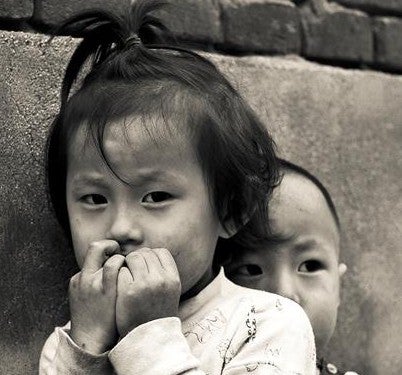Children Overcoming Adversity: Aim High But Have a Plan
 USC and China researchers’ findings of “left behind” children in China could apply to children anywhere enduring adverse situations.
USC and China researchers’ findings of “left behind” children in China could apply to children anywhere enduring adverse situations.
Contact: Emily Gersema at (213) 740-0252 or gersema@usc.edu
Making a plan can be the difference in overcoming a difficult childhood, while just thinking about those difficulties can drag down the child.
A set of four new studies from researchers at USC and Southwest University in China suggest, contrary to prior belief, children in difficult situations need to do more than dream of a happier and successful future self: They need a strategy for becoming that person.
Two of the studies found eighth graders performed better in school if they had strategies for becoming their future selves, as well as several options for becoming the self that they envision. The other two studies showed that the mere thought of an unhappy childhood was enough to dampen the optimism and the ability of children to plan their escapes.
The set of studies were published online in the Journal Of Adolescence on Aug. 28.
‘Left behind’ children
The scientists had focused on a population with profound social and economic challenges: rural Chinese children labeled “left behind” and usually left in the care of grandparents because their parents have left them while seeking higher-paying urban jobs far from home.
These parents do not take their children with them because Chinese law requires that children attend school in the area where they were born, said Daphna Oyserman, Dean’s Professor of Psychology and Co-director of the USC Dornsife Center for Mind and Society.
As a result, an estimated 40 percent of all Chinese children in rural areas — as many as 60 million — are left behind, according to the All-China Women’s Federation.
“Their parents, like parents everywhere, sacrifice the present for hopes for the future. I started the studies wondering if calling a child ‘left behind,’ would have negative consequences with the implication that ‘no one loves me,” Oyserman said. “Or are the parents able to instill in their children this narrative?: ‘We are doing this so our family can move forward.’
“That is what we found: Like their peers, ‘left behind children’ who focus on their possible future selves and especially on strategies to attain these possible future selves, fulfill their parents’ ‘moving forward’ narrative,” Oyserman said. “Their academic performance improves, they have fewer problems at school and feel better.”
The narrative could apply to children anywhere, Oyserman noted. American children, for example, may face homelessness, separation from a parent through divorce, or endure the instability of foster care placement.
Oyserman and Southwest University professor Chongzeng Bi conducted four studies with four separate groups of children, all around 14 years old, ranging in number from 124 to 176 students, in the Chongqing region of China. Many of the teens reported that their parents had left them when they were young as 5 years old.
The researchers gauged the students’ feelings about being left behind, their future and fatalism, and sought to determine what helps children rise above difficult circumstances.



